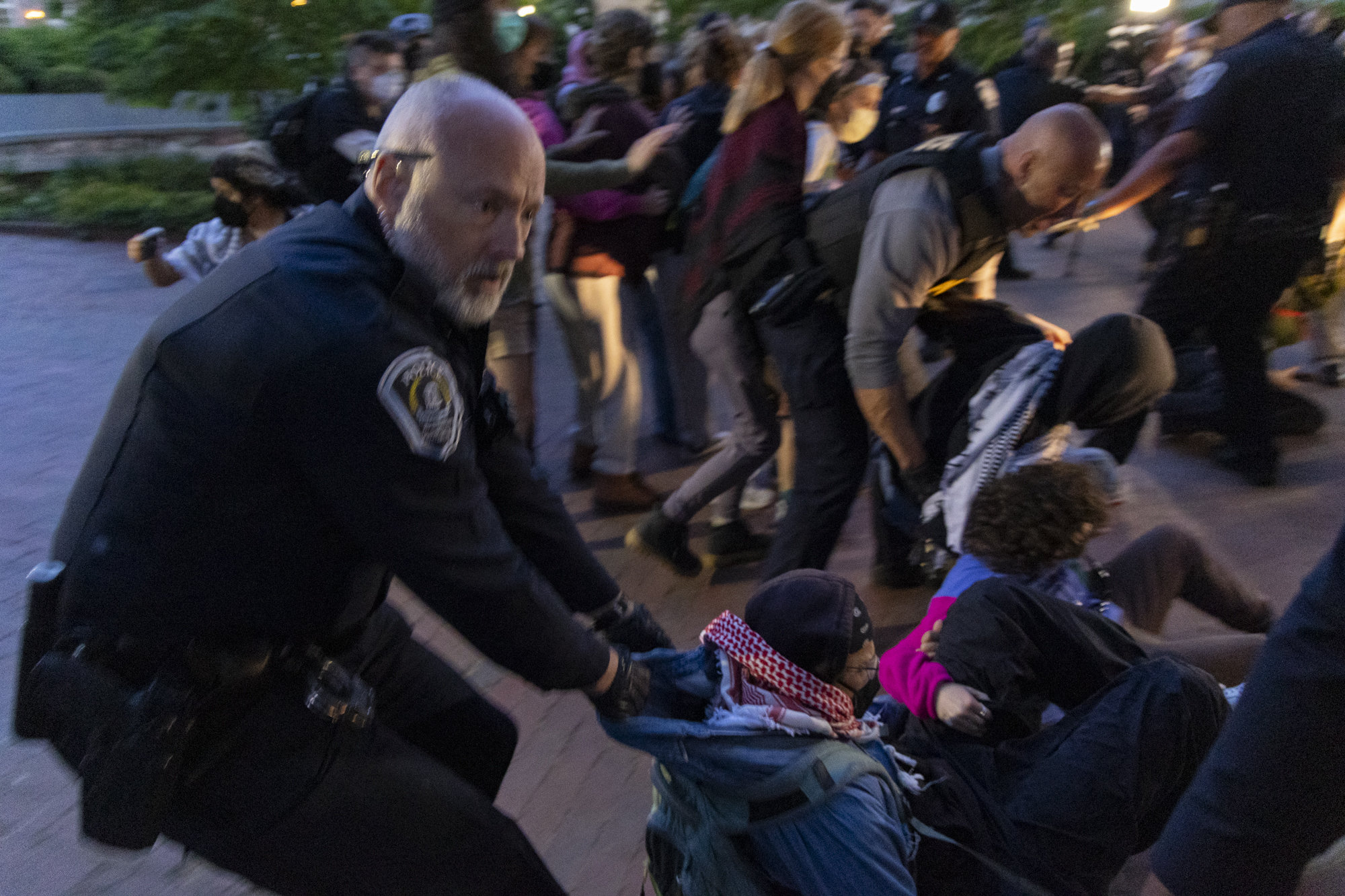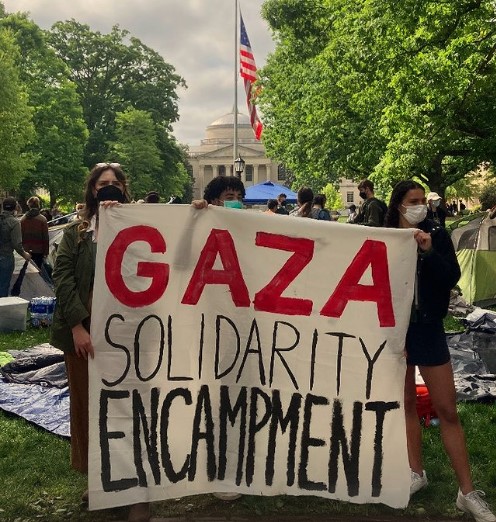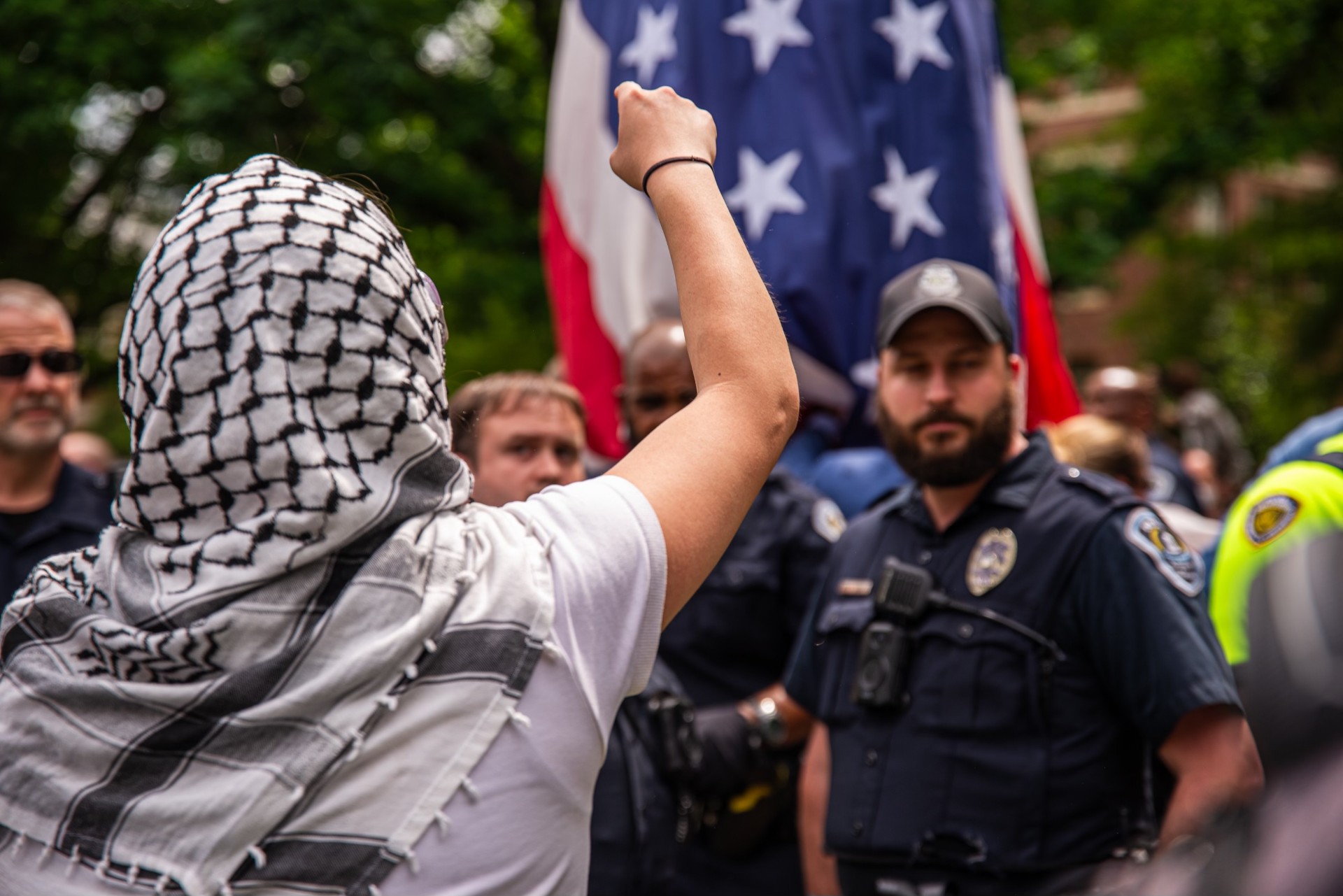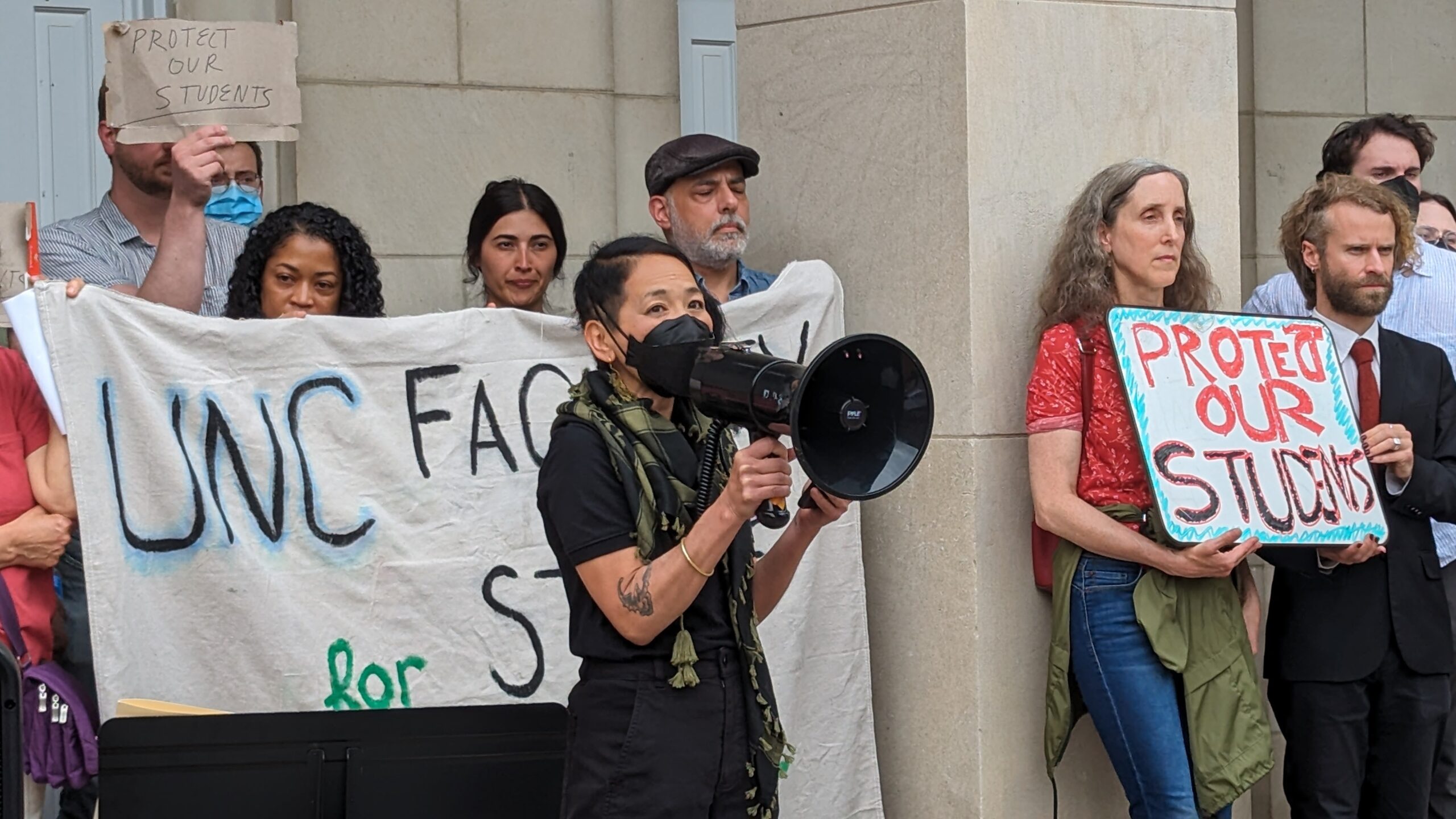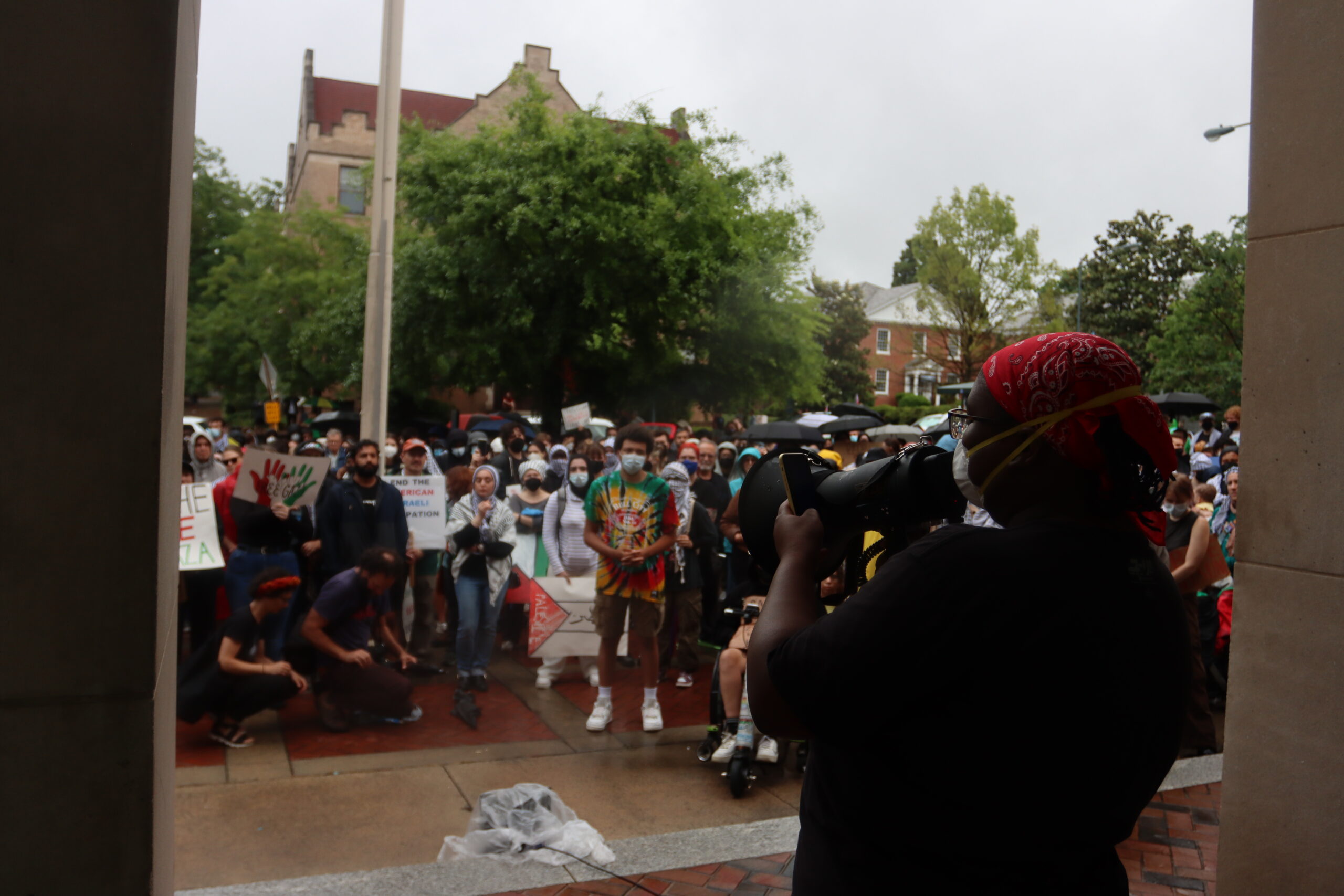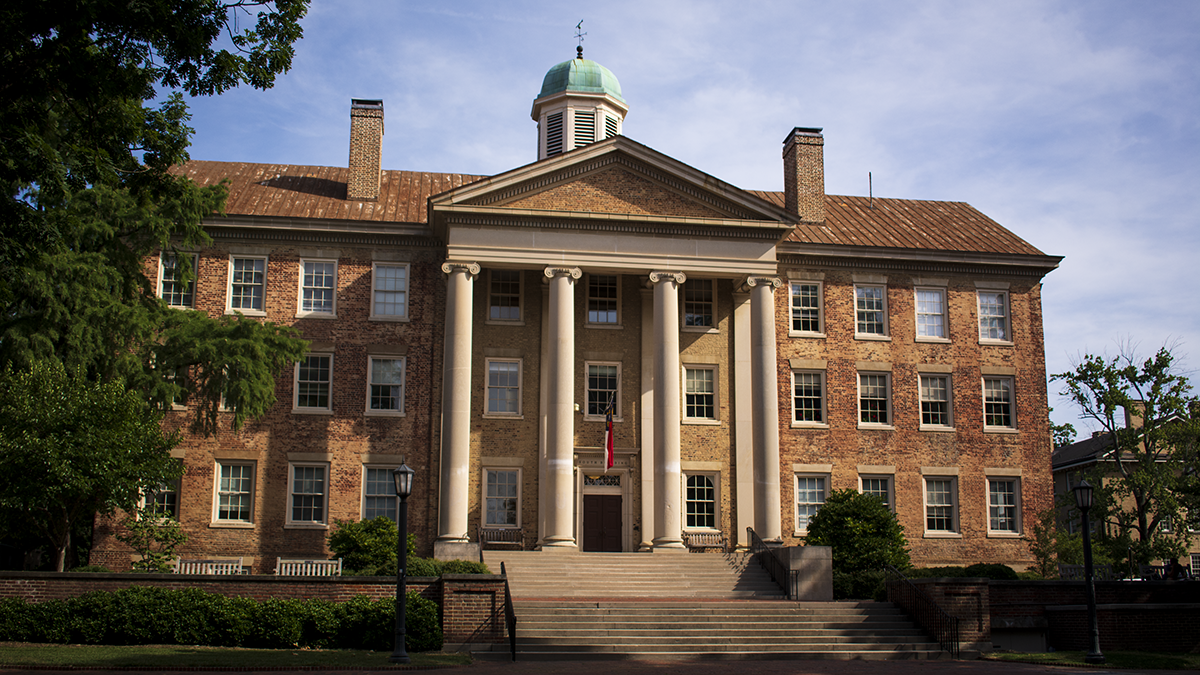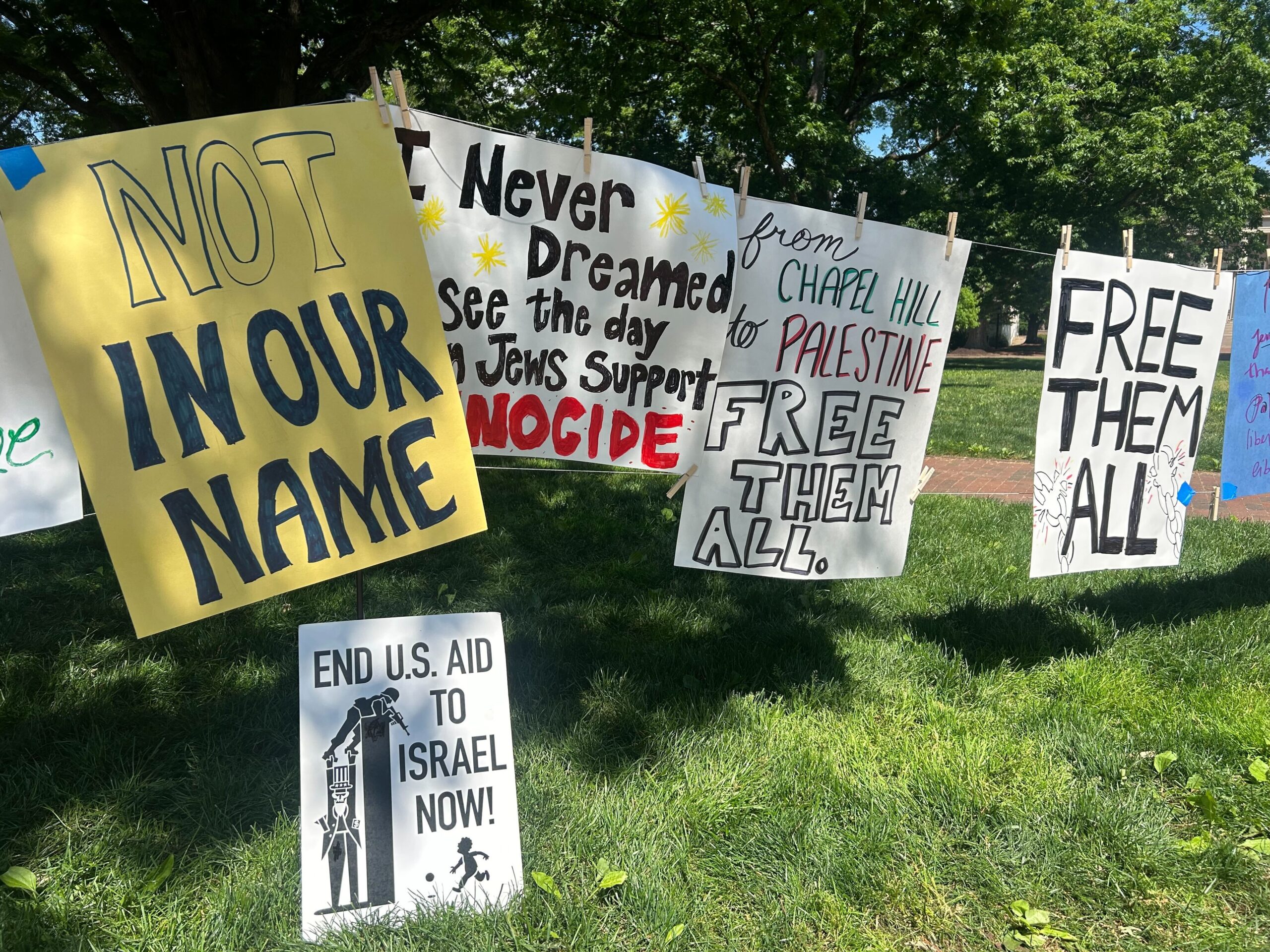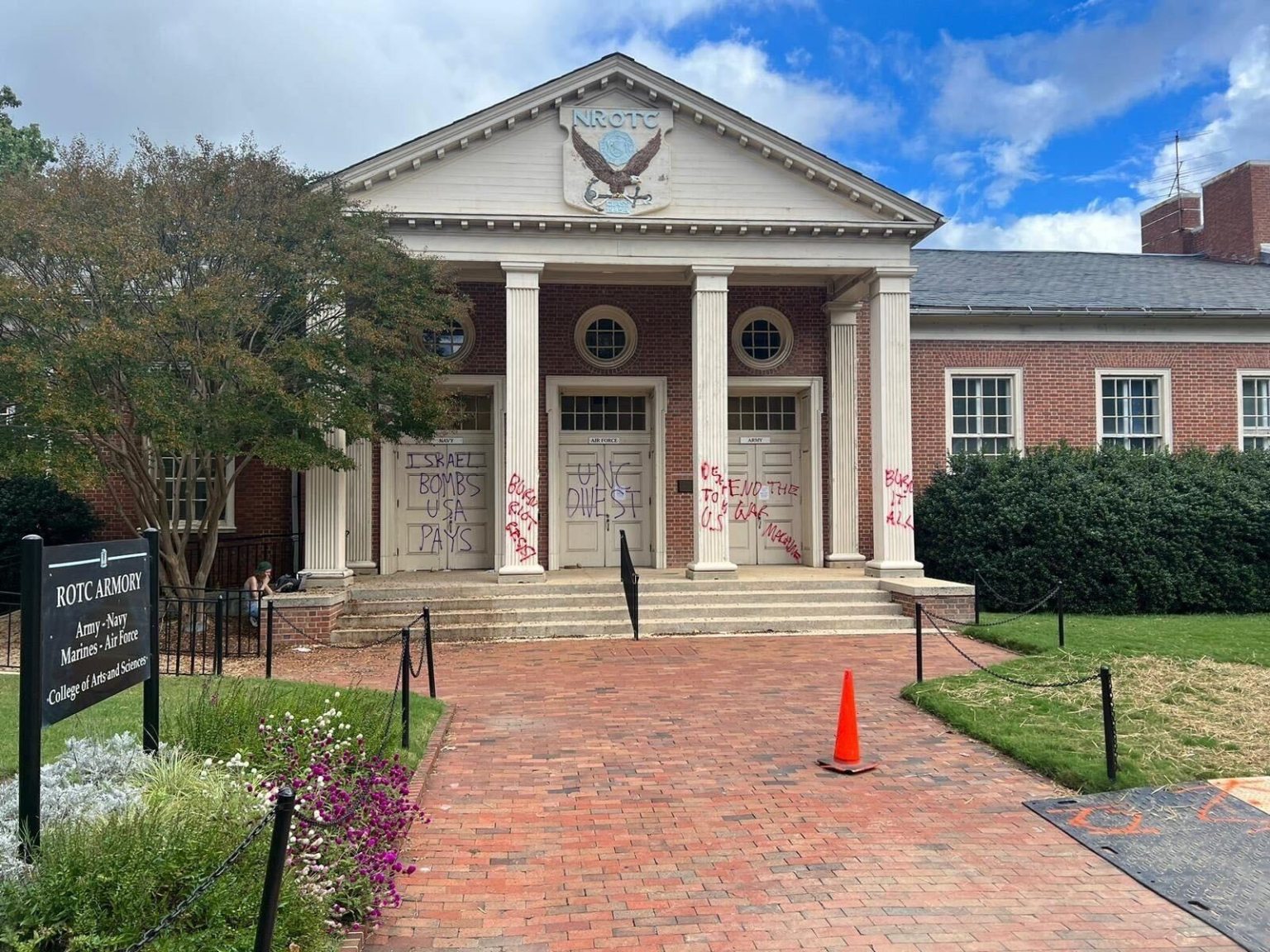UPDATE: On Dec. 19, Orange County District Attorney Jeff Nieman confirmed to Chapelboro his office would not seek trial and dismiss the final eight protesters’ cases set to be heard in court on Friday, Dec. 20. He cited Judge Samantha Cabe’s written order ruling that the state lacked sufficient evidence to prove guilt of second degree trespassing, combined with his office’s re-evaluation of facts in the cases.
Below is the original story based on the six cases either heard or dismissed around Friday, Dec. 13.
As six people were set to be tried in court last Friday over their participation in the pro-Palestine encampment on UNC’s campus this spring, each saw their cases dismissed.
Orange County District Court Judge Samantha Cabe allowed the dismissal of one demonstrator’s case from among those arrested on April 30 by UNC’s administration if people did not disperse from the encampment and remove their tents. Attorneys for the demonstrator argued in court the arrest and clearing of Polk Place violated their client’s First Amendment rights to free speech.
“We hope this victory will help put an end to the chilling of free speech which occurred when UNC Police wrongfully charged these demonstrators who were fighting for justice,” said Gina Balamucki, an attorney with Blackrose Law in Orange County representing the defendant.
Friday’s proceedings marked the first case to actually make it to trial in Orange County, as more than two dozen others charged for their roles in the demonstrations on UNC’s Polk Place have accepted plea deals to defer prosecution since the spring. Five other cases set to be heard on Dec. 13 were dismissed by the office of District Attorney Jeff Nieman — who told Chapelboro despite his office’s work to prepare the cases for trial, the law enforcement officers who would be able to testify against the protesters could not be reached.
“We realized that five of those six we simply didn’t have sufficient evidence to take them to trial,” said Nieman. “That’s not necessarily because there sufficient facts to prove the crime [didn’t exist], but it boils down to: we either couldn’t ascertain who the charging officer was in those individual cases, or if we could determine who it was, we couldn’t locate them.
“That might sound unusual, but this was an unusual case,” he added. “Thirty-nine cases, all arising from one or two days, lots of people being charged at the same time, there was a chaotic nature to it… and that’s nobody’s fault. There were a lot of people involved… a lot of law enforcement, a lot of suspects in the crimes being processed. That — combined with there were a lot of officers from outside agencies… outside the university, outside the county, outside the district — made for a confluence of circumstances that resulted in a few cases [where] we couldn’t quite figure out [which officers] did what to put up witnesses [on the stand] to make the cases.”
For the one case that Cabe dismissed, Nieman’s office requested a written order from the judge to formally share and expand on her decision. As a result of that order, the district attorney’s office may end up either appealing the case or letting it go. Additionally, the judge’s written ruling on the First Amendment-related argument could affect whether the office will go forward with cases against eight remaining protesters with misdemeanors from the event.
Despite calls from the attorneys and some community members for his office to not prosecute the charges brought by UNC administrators, Nieman has said since the arrests that his office would do its due diligence in examining the evidence of cases and prosecuting where there was enough to prove that a law was broken. The district attorney told Chapelboro he recognizes the protests happened on public land, but that disruption of UNC operations or others’ ability to access the university’s facilities could still qualify as a violation of the law.
“What we said from the beginning was we were going to evaluate all the evidence — and if the evidence supported that the elements of the crimes could be met, we were going to forward [with prosecuting,]” said Nieman. “Now, going forward in most cases meant we were still offering deferred prosecutions like we typically would a first offender, especially misdemeanor offenses. But we weren’t going to just simply put them out the door from the beginning as a blanket rule… we were going to go forward with the cases.”
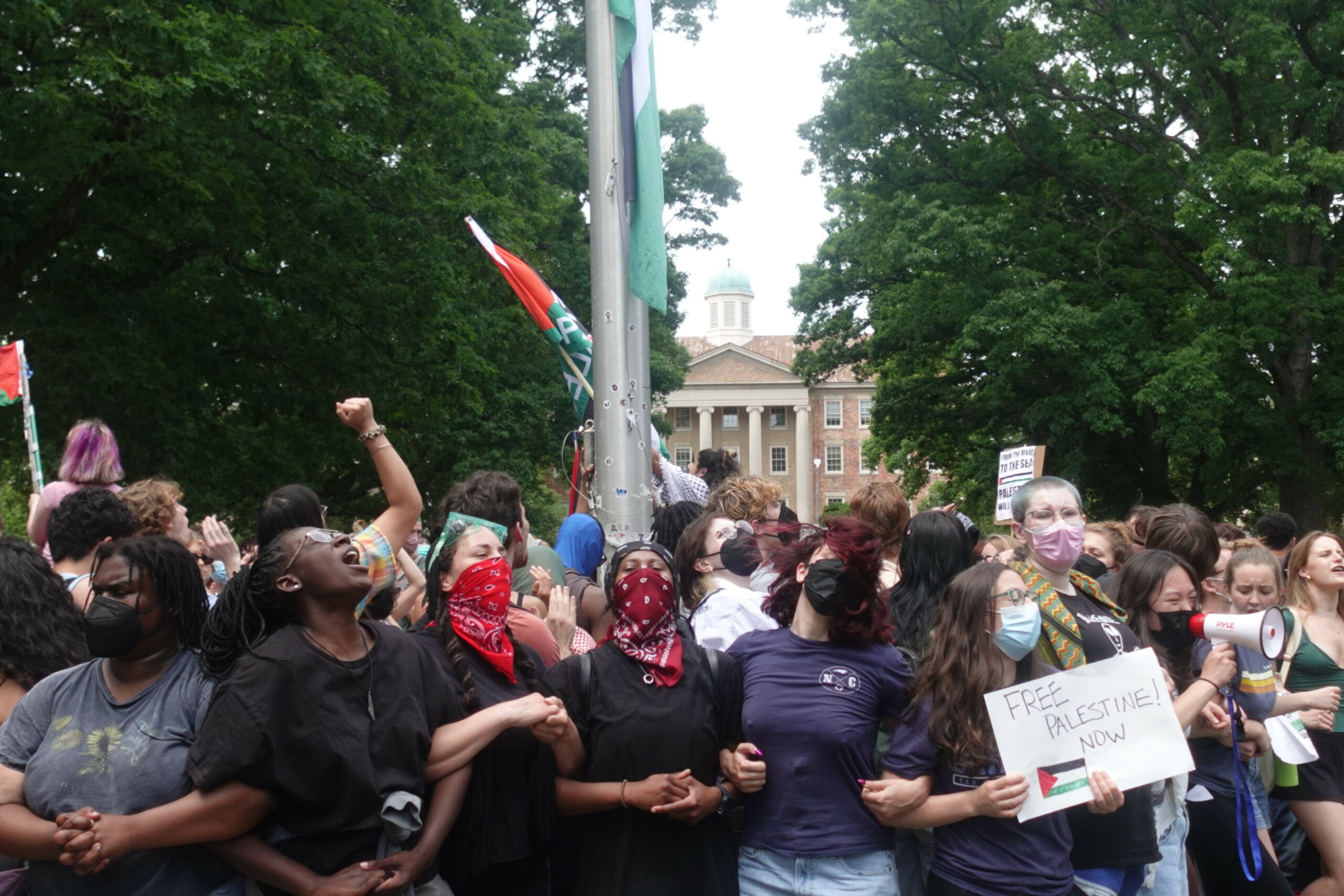
Pro-Palestine demonstrators lock arms around the flagpole after replacing the U.S. flag with a Palestinian flag on the afternoon of Tuesday, April 30. After the early-morning arrest of people at the encampment, a bigger demonstration was held — and resulted in a clash with police around the campus’ flagpole. (Photo via Rafael Linhares.)
About 25 other protesters arrested in the pro-Palestine demonstrations have accepted those deferred prosecutions from the district attorney’s office and court. Nieman said, to his knowledge, no one charged had a prior criminal record and went through a conditional discharge.
“The case is set out for some period of time, you agree to abide by certain conditions — most notably, do some amount of community service and not commit any new criminal offenses,” he told Chapelboro. “And if the person successfully does that, at the end of that period, they have the case dismissed. Most of the [UNC-related] cases are in that posture.”
At the time of the arrests on April 30 over the encampment, UNC Media Relations said 13 out of the 30 people cited for trespassing were university-affiliated. Nieman said 39 people in total faced charges stemming from the events of that day and additional demonstrations.
Another reason of going forward with building the cases where possible, Nieman said, is the opportunity to give feedback to law enforcement agencies on handling such protests or similar incidents.
“Wherever we land,” said the district attorney, “this will put us in a better position to advise both the UNC Department of Public Safety and others law enforcement agencies on how we could do things differently — if we find that there were things that could’ve been done better or differently. We can help use this as a way to help guide how enforcement action can be taken in the future.”
The pro-Palestine demonstrators and their attorneys, however, advocate for the remaining cases to not go to trial based on the results of Friday’s ruling.
“This trial made it clear that what these protesters did was protected by the First Amendment,” said attorney Jaelyn Miller, who works with Emancipate NC to represent the protesters. “It is shameful that the DA has not dismissed these cases, and any continued effort to prosecute these individuals would just further highlight that the DA’s office is not interested in pursuing justice, but instead, assisting UNC-CH in punishing these protesters for daring to speak up about a genocide.”
Elizabeth Simpson of Emancipate NC, Pooyan Ordoubadi of Lopez-Cobb and Ordoubadi, Djaouida Siaci of DS Law, and Reem Subei with the NC Muslim Bar Association are also representing some of the protesters whose cases have been considered for trial in Orange County District Court.
Since the militant group Hamas attacked Israeli citizens on Oct. 7, 2023 and Israel responded with a military offensive in Gaza, there have been numerous demonstrations for both sides of the war on UNC’s campus. Pro-Palestine groups have consistently held more — many of which have not resulted in arrests. The encampment at the end of April, though, drew sharp criticism from UNC administrators after the group was told to not set up temporary structures on the Polk Place quad — since that is in violation of the university’s statutes. After warning the demonstrators to either take down the tents or disperse during the early morning hours of April 30, university police and supporting law enforcement agencies made several arrests. Additional charges have been sought by UNC officials since then after groups vandalized South Building and the university’s ROTC building with paint or pro-Palestine messages.
Photo via Jennifer Tran.
Chapelboro.com does not charge subscription fees, and you can directly support our efforts in local journalism here. Want more of what you see on Chapelboro? Let us bring free local news and community information to you by signing up for our newsletter.

